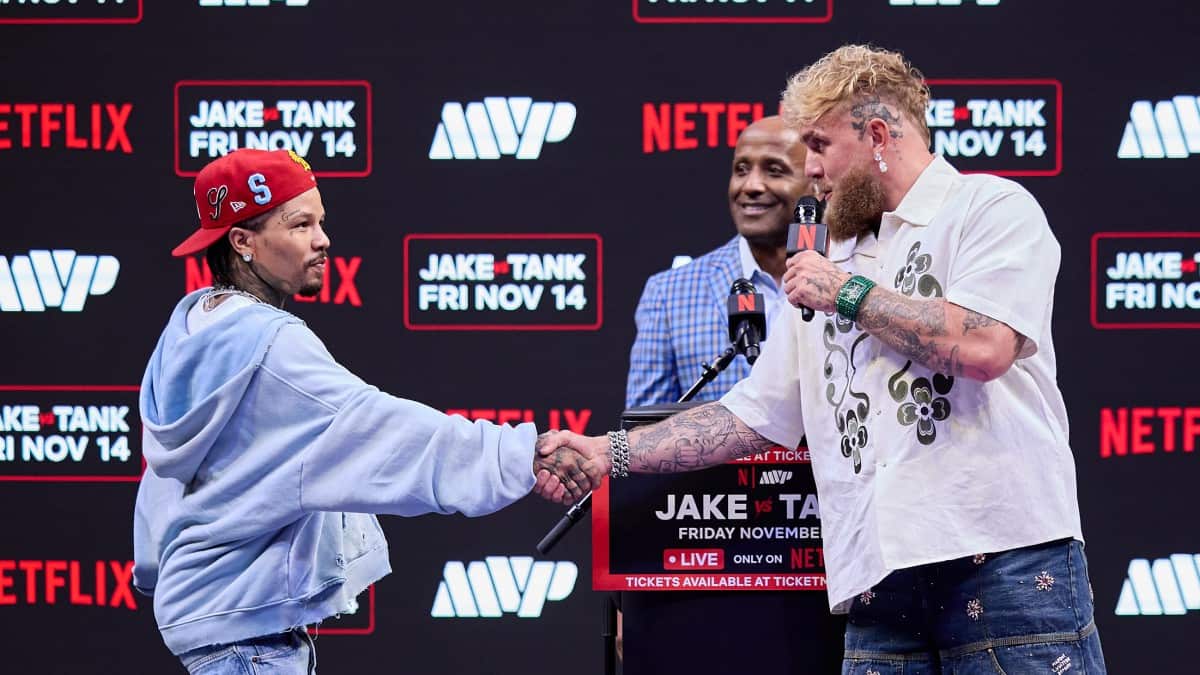Once hailed as one of boxing’s brightest stars, Gervonta “Tank” Davis has made a shocking declaration: boxing is dead. In a candid statement, Davis told fans, using the exact phrasing that sent shockwaves through the community:
“Boxing definitely did a turn, it went from this side to that side, and this s*** has no loyalty, so why would I care? I move accordingly, boxing is dead.”
The words are blunt, but the action speaks louder. After years of climbing the ranks, thrilling fight fans, and cementing his reputation as a feared and respected champion, Davis is now pivoting away from the sport that made him. His next bout will be an exhibition against the “YouTuber” Jake Paul on Netflix, a move that signals a complete shift in priorities from legacy to entertainment.
From Champion to Casual Spectacle
Davis’ pivot is more than a single fight; it is a statement about his relationship with professional boxing. The sport that once tested him against elite competition, demanded discipline, and rewarded hard-earned victories is now, in his eyes, expendable. By choosing exhibitions over traditional bouts, he is trading the loyalty of hardcore fans for a broader audience and quicker paydays.
Hardcore supporters who followed his career from the early belts to the top of the pound-for-pound lists are being left behind. Tank’s shift to a casual and YouTube audience risks alienating the very fan base that cheered every punch, celebrated every championship, and helped elevate him to stardom.
The Fallout Among Fans
If Davis ever attempts a return to serious professional boxing, he will face a skeptical and angry community. The sport’s core supporters do not forget. They remember the fighter who had the skill, the power, and the opportunity to define a generation — and now they see him trading that promise for entertainment money.
Boxing thrives on heart, ambition, and respect for the sport. By openly stating that boxing is dead, Davis has signaled that those values no longer guide his career. The man who once sought the most formidable opponents is now chasing exposure, clicks, and Netflix hype. The very essence of professional competition is secondary to personal gain.

A Legacy at Risk
At just 30 years old, Davis is still in his prime. Yet this pivot raises complex questions about his legacy. Talent alone will not protect him from the scrutiny of fans and the sport’s insiders. Once a symbol of modern boxing excellence, Davis now risks being remembered more for his willingness to abandon the sport than for his titles or victories.
The sport has lost a champion who could have continued to elevate boxing, but the business of boxing may have lost him entirely. By chasing casual audiences over competitive legitimacy, Davis has drawn a line between himself and the sport’s core. For some, this is the moment the star truly fell from the heights he once occupied.
Boxing may survive, but for Gervonta Davis, his reputation, credibility, and connection with the fans who built him have all been put on pause — and the world is watching to see if, or when, he will return to the sport that made him a star.
About the Author
Phil Jay is a veteran boxing journalist with over 15 years of experience covering the global fight scene. As Editor-in-Chief of World Boxing News since 2010, Jay has interviewed dozens of world champions and reported ringside on boxing’s biggest nights. [View all articles by Phil Jay] and learn more about his work in combat sports journalism.
Stay Ahead in Boxing News
Subscribe to the free WBN Newsletter for trusted updates, exclusive interviews, and fight analysis delivered daily.
Join the [World Boxing News Channel] or follow WBN on [Linktree].

